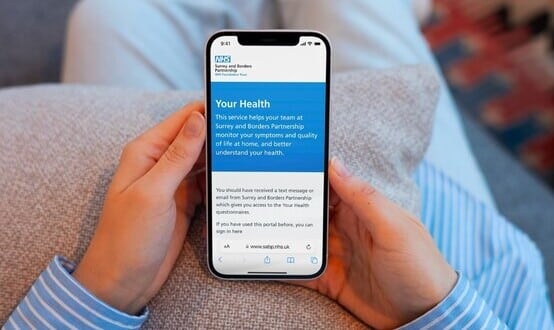UK employees back workplace wearables for mental health support

More than half of working adults in the UK would be would be prepared to wear devices designed to monitor their mental health and flag troubling symptoms, according to a new report.
The ‘AXA Health Tech & You State of the Nation survey’, conducted by YouGov, involved interviewing 2,000 adults about their attitudes towards mental health in the workplace.
It found that many workers feared raising mental wellbeing concerns because they were worried about being stigmatised by peers.
However, it revealed that workers are willing to adopt technology-driven strategies to help improve mental health in the workplace.
For example, 51% of those interviewed said they would be prepared to wear devices designed to monitor mental health and flag early symptoms – provided it was supplied by their employer free of charge.
While over half (55%) of workers said they would feel uncomfortable sharing gathered information with their employer, 50% said they would do so if the data was anonymised and could be used to develop wellbeing strategies for the workplace.
The survey revealed mixed perceptions of sharing mental health issues with employers. Over half (52%) of those who had experienced mental health concerns in the workplace had not discussed this with their bosses. Yet of those who had, 71% said they had received support.
The findings formed part of a recent round table discussion that examined the emerging trends in health technology, and how it could be used too detect mental health conditions in the workplace.
Julia Manning, founding director of business think-tank 2020health, said: “Familiarity with smartphones and other consumer tech means people already have tools in their hands to think about supporting their wellbeing.
“Given the huge unmet need in society for mental health support, if we can get to a place where it is normal, beneficial and safe to utilise digital mental health tools, then I would hope this would build confidence in self-management of wellbeing.”
The study concluded that workplaces needed to establish a “culture of trust” whereby employers felt comfortable raising health concerns with employers and felt supported by them
This should involve the open commitment of senior management to support those with mental health worries, it said,
Further, while the study suggested health-monitoring technology be incorporated in the workplace, this should be done “on a personal basis” and should not be used in the place of human interaction.
Suzanne Scott, HR director at AXA PPP healthcare, said: “In my experience line managers want to support people in their teams who experience mental health issues. Technology opens up a new way to help both the employee and the manager broach the subject and having the relevant data is always a helpful way into a conversation.
“At AXA PPP we are looking at ways we can introduce technology to help us take the next step forward in supporting our people’s wellness.”
The National Institute for Health and Care Excellence (NICE) recently recommended that apps for depression be trialled on the NHS, in order to give adults with depression faster access to care.




